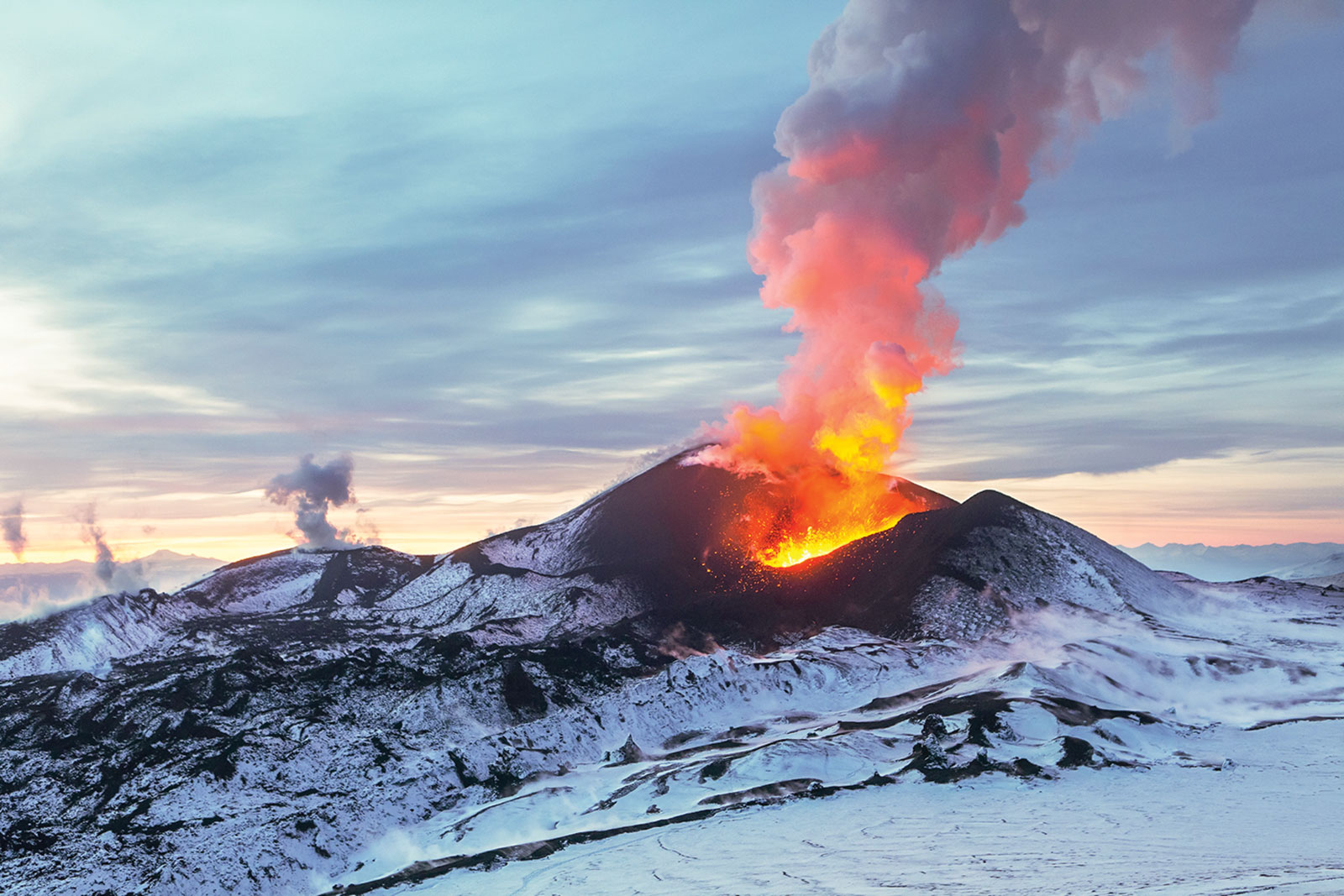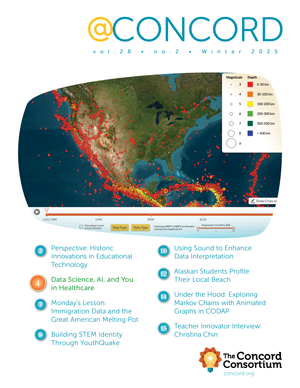News at Concord Consortium
The Concord Consortium is happy to announce the following new grants from The National Science Foundation.
Learning About Geohazards
From severe flooding and powerful earthquakes and volcanoes to the sustained winds of hurricanes, natural disasters around the globe have caused devastation and have had a major impact on millions of people’s lives. How can understanding natural hazards help people plan for and recover more quickly from these impending threats? Two new projects explore innovative instructional approaches for studying geohazards.

GeoHazards: Modeling Natural Hazards and Assessing Risks is collaborating with Pennsylvania State University, TERC, and National Geographic Society to develop a set of computational models that allow students to explore geoscience systems responsible for natural hazards. Students compare data generated from Earth systems models with real-world data in order to develop an understanding of the cause and progression of natural hazards, as well as to make predictions and evaluate future risks in a certain location.
Visualizing Geohazards and Risk with Code (GeoCode) is partnering with UNAVCO and the University of Florida to engage students in the study of geohazards through the integration of computational thinking and science practices. Students transform real-world GPS data into interpretable visualizations. GeoCode also asks students to formulate scientific arguments about predicting impacts and assessing risks.
Both projects support students in applying their understanding of the processes underlying each hazard to build models and visualize data. Curriculum will include scaffolds to assist students in the development of scientific arguments as they consider both risk assessment and mitigation strategies.
Scaffolding Computational Thinking Through Multilevel Systems Modeling
Systems thinking and modeling are essential for addressing some of our most challenging scientific and societal problems—from climate change to economic policy. However, few students are exposed to systems thinking as an approach to understanding phenomena, and even fewer have the opportunity to build their own runnable system models. Computational thinking plays a key role in developing solutions to scientific and engineering problems that involve a systems modeling approach. The Concord Consortium and the CREATE for STEM Institute at Michigan State University are conducting research on student engagement in computational thinking while developing and testing systems models. High school students will use SageModeler to develop models of increasing complexity in physics, chemistry, biology, and Earth and environmental science. The goal of the project is to further the understanding of how the intersection of student modeling and computational thinking develop
over time.
Connections of Earth and Sky with Augmented Reality
Augmented reality (AR) systems hold the potential to immerse users in 3D virtual holographic models of scientific systems embedded in a room with both objects and other people present. Multiple people can view and manipulate these holographic models from their own vantage point to support collaborative learning. The Concord Consortium and the University of Illinois, Urbana-Champaign are examining how the visual, physical, and psycho-social affordances of AR can be leveraged and extended to optimize small group interaction and cultivate collaboration and problem solving. We will develop and test learning scenarios that include models of planetary astronomy.
Researchers will work with community college professors in Massachusetts and Illinois to develop scenarios that equip students with problem-solving skills that build from foundational science understandings, and test them with community college students. The project aims to contribute to the research on human-computer interaction and produce design guidelines to support future AR workplace collaboration.
